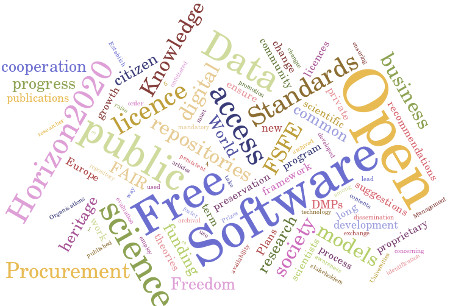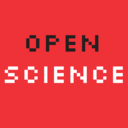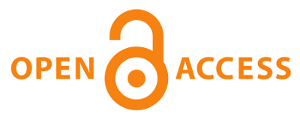Contents

FSFE's position on the interim evaluation of Horizon 2020
Deadline: January 15, 2017
Currently, the European Commission Directorate-General for Research & Innovation is running a public consultation about the interim evaluation of Horizon 2020 that is open until 15.01.2017.
The results of this consultation will feed into the report on the interim evaluation of Horizon 2020, "will help the EC to improve the implementation of Horizon 2020 and will set the scene for the future discussions on the next EU research and innovation funding post-2020". This is why the Free Software Foundation Europe considers this public consultation as a good opportunity to put forward its suggestions regarding Free Software, taking its stance on the European Commission' s policy in a long-term scheme.
What is Horizon 2020?
Horizon 2020 is the biggest EU Research and Innovation programme ever with nearly €80 billion of funding available over 7 years (2014 to 2020) – with additional further private investments. Its primary goal is to invest large amounts of EU funds in scientific research for scientific advances and technological inventions that ensure growth and innovation in all the scientific fields.
How is Free Software related to Horizon 2020?
Software constitutes an integral part of modern research across all disciplines. In Horizon 2020, the majority of the software and hardware used for scientific research is acquired and developed using public money. Therefore the FSFE believes that software developed in the framework of Horizon 2020 should be published under Free Software licences. Ensuring the accessibility of other public and private institutions to reuse, study, further develop and improve the software will foster scientific research and benefit society as a whole.
Take action!
If you are a concerned individual, or a representative of an organisation and you would like to contribute to send out the message to the European Commission that Free Software and Open Standards must be a fundamental part of Horizon 2020 and all scientific research, then please find some help on this page to do so. Please choose:
If you have 30 minutes, you are welcome to read through the #FSFE's recommendations, take a quick look of our position paper and consult our instructions for filling out the consultation questionnaire.
If you just have 5 minutes, follow our #5minutes instructions at the end of this wiki page
Background: FSFE's position paper in a nutshell
The Free Software Foundation Europe (FSFE) is a charity that empowers users to control technology by advocating for Free Software. In a digital world, Free Software is the fundament of Open Knowledge, Open Innovation and Open Science.
The FSFE prepared a paper that summarises its key recommendations concerning the midterm evaluation of the Horizon 2020 program as well as the European Commission' s efforts to draft the Framework Programme 2018-2020. Following these recommendations helps to unlock the full potential of Open Science and Open Access investments, which are in the core of Horizon 2020.
Therefore, in order to safeguard a sustainable future of scientific and technological innovation in Europe and worldwide, the FSFE formulates the following recommendations: 
- Open Standards should be preferred for all knowledge exchange, and in particular for the dissemination of scientific publications and the archival of all articles, data, and software used in scientific research. The use of Open Standards in data and software repositories and Data Management Plans (DMPs) concerning the Horizon 2020 publications, is necessary to ensure data preservation and Open Science. Research Funding Organisations should take the lead and foster changes of business models when dealing with research data.
- Software developed with public funding, and in particular in the framework of the Horizon2020 program should be mandatorily published under a Free Software licence.
- Software developed with public funding, and in particular in the framework of the Horizon2020 program should be mandatorily archived in a public software repository ensuring long term availability and persistent identification.
- Data and software repositories and Data Management Plans (DMPs) must employ Free Software in order to ensure unfettered access to their contents and long term preservation.
- Establish "Open Science" Prizes for the promotion of Open Science and raise awareness among stakeholders.
Find the complete position paper here.
Public consultation on Horizon 2020: Our walk-through
Fill and submit the questionnaire
The questionnaire is to be filled and submitted online until the 15.01.2017. The consultation is open to everyone, who wishes to participate. It mostly consists of multiple choice sections and takes approx. 10-15 minutes. The multiple choice selection have barely to do with Free Software. You can read the multiple choice questions and select the fields you wish. It is also possible to answer "I don't know".
Some questions have the option to answer with a free text. We provide indicative answers for this section below. You can simply copy&paste them into your reply. 
Most important: At the end of the questionnaire, you are given the possibility to submit a longer paper. Feel free to submit our position paper there!
Indicative answers
Among multiple choice questions, the questionnaire also contains fields for free-text replies, supporting max. 200 or 500 characters. These are the parts, where we can include some more specific ideas about Free Software. We prepared some indicative answers, which we encourage you to use, when filling the questionnaire. Simply copy and paste these answers into your questionnaire.
11.1 Please provide here any other comments (if any) on the relevance of Horizon 2020 priorities and forms of funding. 500 character(s) maximum |
An additional prize for "Open Science" shall be designed to honour researchers who share their research results, including data and software with others. This way, not only scientists who promote Open Science will be honoured for their work, but also awareness concerning the benefits of Open Access and Open Science will be raised among participating universities, schools, private entities and other stakeholders, contributing to promotion of the "Science with Society" principle. |
13. Please provide here any further comments (if any) on the implementation of Horizon 2020. 500 character(s) maximum |
Maximum transparency during the evaluation process and case-by-case assessment of interests balance must ensure full Open Access to all scientific publications, no matter if the latter are financed by public or public-private funds. The Horizon 2020 research results, including software, must be freely accessible to everyone, and all the research data reusable. |
18.1 Please provide here any further comments (if any) on the EU added value of Horizon 2020. 500 character(s) maximum |
Horizon 2020 primary goal is to invest large amounts of EU funds in scientific research for the common good. Consequently, the produced knowledge should be treated as a public good that will boost innovation and lead progress. Thus, the results of cooperative efforts must be made available to all scientists. In the digital age, this approach is translated as demand for Open Access and Open Science based on Open Standards and Free Software. |
19. What would be the impact for you or your organisation if the EU support to research and innovation (Horizon 2020 and its possible successor) were to be discontinued? 500 character(s) maximum |
If the EU support to research and innovation was to be discontinued, this could have a detrimental effect on scientific cooperation and Open Science in Europe, one of the main principles of Horizon 2020. Due to the importance of software in science nowadays and the universality of its development, the losses of discontinued support will be uncountable for discovery, innovation, societal sustainability and growth. |
24. In your opinion, what is the most important issue/problem/opportunity to be addressed by the EU framework programmes for research and innovation? Indicate one area/topic. 200 character(s) maximum |
Software should be considered fundamental to Open Science. In order for research to be valid, accessible and transparent , the access to software must be ensured under Free Software licence. |
25.1 Please provide here any further comments (if any) on issues you find important regarding a possible successor programme to Horizon 2020. 500 character(s) maximum |
Open Standards should be preferred for the dissemination of scientific publications and the archival of all articles, data, and software used in scientific research. Software developed with public funding, should be published under a Free Software licence and archived in a public software repository ensuring long term availability and persistent identification. Data and software repositories must employ Free Software in order to ensure access to their content and long term preservation. |
Please share with us a short, telegraphic testimonial. What does Horizon 2020 mean to you? What is its main feature? 200 character(s)maximum |
Horizon 2020 is a pool of innovation and cooperation and should further endorse the principle of Open Science, by adding Free Software and Open Standards to be essential to its goals. |
Endorse our Position Paper
 We encourage individuals, organisations, public institutions and educational institutions to boost European scientific process by standing up for software freedom. You can endorse our Position Paper not just by taking part in the consultation but also by sharing it on your website in social media or press.
We encourage individuals, organisations, public institutions and educational institutions to boost European scientific process by standing up for software freedom. You can endorse our Position Paper not just by taking part in the consultation but also by sharing it on your website in social media or press.
If you have any questions, please send an email to contact@fsfe.org
If you wish to support this Position Paper publicly as an organisation with your logo, please contact us.
Share
It goes without saying that the more people fill and submit the questionnaire and attach our Position Paper in it, the bigger impact we will manage to have on the EC' s policy concerning Free Software and Open Standards in scientific research. So, please feel free to share this wiki page with friends, family and others who endorse the same views, or to share our Position Paper across the internet and let people know about our recommendations.
If you just have 5 minutes
Are you already convinced, but you only have 5 minutes of spare time? Then why not spend these minutes to support Free Software and FSFE towards Horizon2020?
Go to the public consultation page until the 15.01.2017.
- Start the questionnaire and fill in your details in PART I.
- Fill in the multiple-choice sections the way you wish. The consultation asks you to answer few questions that you are not allowed to skip. However, to safe time, you can simply put "I don't know" in these questions. There is no question crucial to Free Software. If you like you can and copy-paste our answers to the relevant free-text fields or save your time by leaving them blank.
Go to Part VI, question 26 and upload our position paper.
- Answer the "I am not a robot" question on the bottom of the page.
- You are done!
- Do you have one minute more? Then share this call for action with your friends and colleagues.
Thank you for supporting Free Software!
The FSFE's Freedom of Information (FOI) request
The subject of the request
As follow-up, on 9 January 2017 the FSFE filed to the European Commission Directorate-General for Research & Innovation, the following Freedom of Information request:
Subject: Expenses and Statistics on Software licences in Horizon 2020
Dear Research and Innovation,
Under the right of access to documents in the EU treaties, as developed in Regulation 1049/2001, I am requesting documents which contain the following information:
- Do you monitor and/or collect data about the usage of IT and software in Horizon 2020 projects, and specifically if projects use or develop Free Software (also known as 'open source')?
- How many projects, both in numbers and in percentage of the overall amount of research projects participating in Horizon 2020 pay licence fees for software? What are the top most paid licence fees for software amongst Horizon 2020 projects?
- How much money was spent by Horizon 2020 during its most recent "phase" on proprietary software licences? How much is this in comparison to the overall funds of Horizon 2020?
- How many projects in numbers and in percentage of the overall amount of research projects funded by Horizon 2020 develop software on their own? What percentage of this software is kept proprietary and how much is published under a licence approved by Free Software Foundation/Open Source Initiative? [^1] Which are the most used Free Software/Open Source licences in this regard?
Yours faithfully, Polina Malaja, Policy Analyst - Legal Coordinator
[^1]: Free Software licence as approved by the Free Software Foundation and the Open Source Initiative.
The reply from the EC
On 26 January 2017, the EC DG for Research & Innovation replied to the FSFE's FOI request. It made clear that the requested information is not contained in any existing documents and therefore the Regulation (EC) No 1049/2001 is not applicable. However, the application was considered and processed under the Code of Good Administrative Behaviour of the European Commission.
In this case, the DG checked whether the requested information existed in some form. They concluded that the European Commission does not systematically collect information about Free and Open-Source Software used or developed under Horizon 2020 grants, as this is not a reporting requirement in the Horizon 2020 legal basis. Consequently, they are not in a position to provide the requested information. The same applies to data concerning Horizon 2020 projects paying licence fees for software or developing software on their own.
You can follow the updates of the discussion and file your own FOI requests here. It is possible that you are requested to create an account for that.
